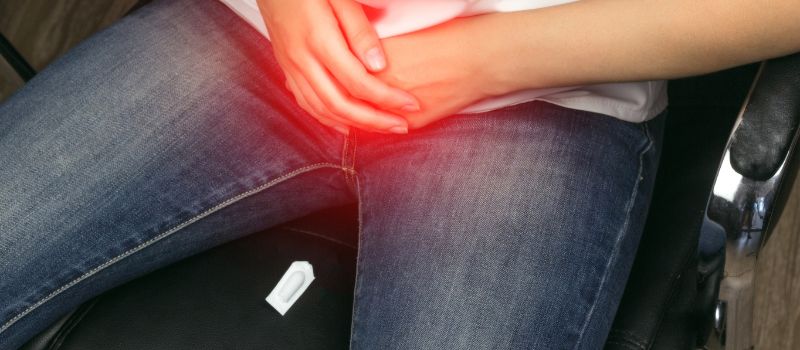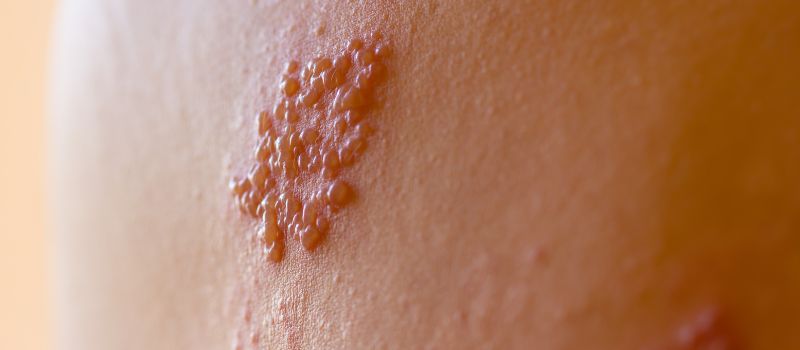STD Testing
Confidential STD Testing in Houston.
Auspicious Lab offering most common kinds of STD testing in Houston. If you looking for labs for std testing for reducing the risk of health complications, making an appoint today —either online or by calling us at (713) 266-0808. We are conveniently located at 3707 Westcenter Dr. Suite 100 Houston, TX 77042 .
We know that an STD (STI) test can be embarrassing, so patient privacy is a priority with us. At Auspicious Laboratory, we understand our patients’ concerns and we strictly follow HIPAA rules, keeping each patient’s personal information very confidential. For self-paying patients, a doctor’s referral is not required. Any or all medical records are released only to the patient.
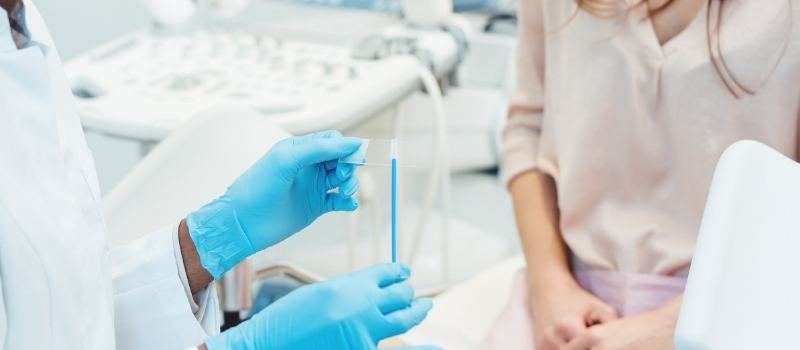
Who Should Be Tested For STD?
As long as you’re sexually active, you should be tested for STDs at least once a year. If you have more than one partner, share intravenous (IV) needles, or don’t always practice safer sex by using a condom each time you have intercourse, you should be tested every 3 to 6 months. Auspicious lab can accomodate safer std testing in Houston within short notice of time-
* All adults and adolescents from ages 13 to 64 should be tested at least once for HIV
* All sexually active women younger than 25 years should be tested for gonorrhea and chlamydia every year.
* Women considering to have baby and during the pregnancy shall have STD tested. Testing and treating pregnant women for STDs is a vital way to prevent serious health complications to both mother and baby that may otherwise happen with infection.
NOTICE
We are closed on Sunday and Major US Holidays.
How the specimen is collected for confidential std test
Urine: Collect the initial 5-10 ml. segment of the first morning void. If the first morning void cannot be obtained, collect a 5-10 ml. voided specimen at least one hour from the previous void.
Swab: A swab with a transport medium is used for collection.
For men: Insert the flocked tip of the specimen swab approximately 3/4 of an inch into the urethra and turn to capture exudate and dislodge urethral cells.
For women: Insert the flocked tip of the specimen swab approximately two inches (5 cm) into the vaginal opening. Gently turn the swab and allow it to absorb the secretions. Directly swab the base of any visible lesions.
Blood: (HIV, HBV AND HCV testing): 10 ml. of whole blood is needed for the testing.
How to get STI tested
Walk directly into our lab—an appointment is not necessary. Make payment and then the sample will be collected on-site. Results will be ready in 48 hours.
What is STD?.
Sexually transmitted diseases (STD), also known as sexually transmitted infections (STIs), are very common. Millions of new infections occur every year in the United States.
STDs pass from one person to another through vaginal, oral and anal sex. They can also be spread though intimate physical contact like heavy petting, though this is not very common.
STDs don’t always cause symptoms or may only cause mild symptoms. Therefore, it is possible to have an infection and not know it. That is why getting an STD test is important if you are having sex. If you receive a positive STD diagnosis, know that all variants are treatable with medicine and some are curable entirely.
STDs are preventable. If you have sex, know how to protect yourself and your sex partner(s) from STDs. Visit today at Auspicious Lab serving as safe std testing center near me in greater Houston.
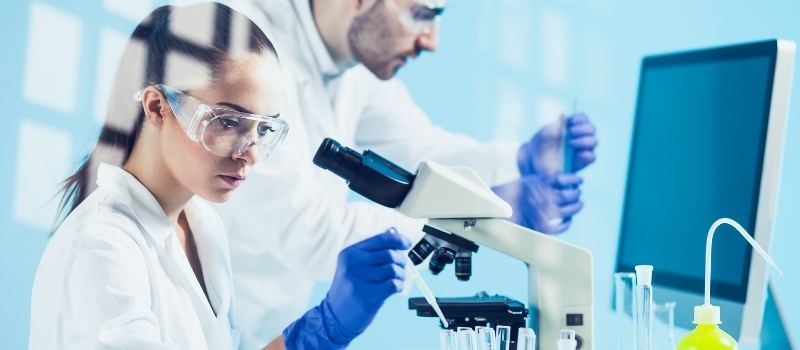
How many infections or STDs can be tested in an
Auspicious Laboratory STI PCR Panel?
Hemophilus ducreyi. Herpes simplex 1 and 2
Neisseria gonorrhea. Mycoplasma Genitalium. Mycoplasma Hominis. Treponema pallidum (Syphilis). Trichomonas vaginalis. Ureaplasma urealyticum. HIV-1. Hepatitis B and C
For non-emergencies, please fill out the form below. If it is urgent, please call us at 713-266-0808 to schedule an appointment.
We are closed on
Sunday and Major US Holidays.
Here are Some Common STDs:
Bacterial Vaginosis
BV is a common, treatable, vaginal condition that can increase your chance of getting an STD.
Chlamydia
Chlamydia is a bacterial infection that is common in young adults who are sexually active. It is caused by the bacterium Chlamydia trachomatis. Both men and women can be infected, and many of those infected do not have any signs or symptoms.
When it does cause symptoms in men, symptoms of urethritis are the most common. It can also cause infections of the epididymis and testes. Chlamydia infection can be cured with antibiotics such as azithromycin. However, reinfection can occur, especially when partners of an infected person are not treated.
Chlamydia is a common but treatable STD. If left untreated, chlamydia can make it difficult for a woman to get pregnant. There are different tests for each STD, and some procedures can test for more than one. Call Auspicious Lab today for your STD Testing in Houston.
Gonorrhea
Like chlamydia, gonorrhea is a bacterial infection that does not always cause signs and symptoms and can remain undiagnosed. Similar to chlamydia, gonorrhea can cause urethritis in men, leading to burning or pain when urinating and discharge from the urethra.
Gonorrhea is caused by Neisseria gonorrhoeae bacteria, and when symptoms do occur, they develop about 4-8 days after contracting the infection. Gonorrhea can also cause infection in the rectum and in the throat. Moreover, it is possible for gonorrhea to spread within the body, causing symptoms like rash and joint pain.
Antibiotics such as cefixime (Suprax) are typically used to treat gonorrhea, although other antibiotics have been used. Treatment is often given that is also curative for chlamydia infection since these two infections frequently occur together.
Gonorrhea is a common STD that can be treated with the right medication. If left untreated, Gonorrhea can cause very serious health problems.
Hepatitis
Hepatitis is an inflammation of the liver. Hepatitis B and Hepatitis C are two viral diseases that can be transmitted by sexual contact. Both the Hepatitis B virus (HBV) and Hepatitis C virus (HCV) are transmitted by contact with the blood of an infected individual or by sexual activity, much like the HIV virus. HBV may not always cause direct symptoms, but it causes symptoms of acute Hepatitis in
about 50% of infections. The primary danger with HBV symptoms is that about 5% of those infected progress to having long-term liver damage, or chronic Hepatitis B. People with chronic Hepatitis B are at increased risk for the development of liver cancer, and are the most common recipients of liver
transplants. There is a very effective vaccine available for the prevention of Hepatitis B. Treatment of acute Hepatitis involves supportive care and rest, although those with chronic Hepatitis may be treated with Interferon or antiviral medications. Call us today for your STD Testing in Houston.
Unlike HBV, HCV is rarely transmitted by sexual contact and is usually spread by contact with the blood of an infected person. Still, it is possible to transmit this virus as a result of sexual contact. Most people infected with HCV have no symptoms, so a delayed or missed diagnosis is common. In contrast to Hepatitis B, most people with HCV infection develop chronic infection with the possibility of liver damage. There is also no vaccine available against HCV.
Herpes
The Herpes Simplex Viruses (HSVs) causes painful blistering sores on sexually exposed areas of the body. They can be transmitted during any type of sexual contact. Typically, HSV type 1 (HSV-1) causes cold sores around the mouth, while the HSV type 2 (HSV-2) causes genital herpes, but both types of HSV can infect the genital area. Like some other STDs, it is possible to become infected with HSV and have very mild symptoms or none at all. Even when symptoms have occurred in the past, it is possible to transmit the infection during any period in which symptoms are not present.
The lesions caused by HSV typically take the form of painful blisters that eventually open, forming ulcers, and then crust over. In men, the sores can be found on the penis, scrotum, buttocks, anus, inside the urethra, or on the skin of the thighs. The first outbreak of HSV infection may be more severe than
subsequent outbreaks and can be accompanied by fever and swollen lymph nodes.
Genital herpes is a common STD, but most people with the infection do not know they have it. While there is no cure, there are medicines available that can prevent or shorten outbreaks. These medicines also can make it less likely to pass the infection on.
HIV/AIDS & STDs
The Human Immunodeficiency Virus (HIV) is perhaps the most feared STD. Infection with the HIV virus can occur during sexual contact, by sharing needles, or from an infected pregnant woman to her baby. The virus ultimately causes dysfunction of the body’s immune system at a later time. The average time from infection to immune suppression is 10 years.
No specific symptoms signal HIV infection, but some people develop fever and a flu-like illness 2 to 4 weeks after they have contracted the virus. Once immune suppression is present, serious complications like unusual infections, certain cancers, and dementia may develop. Numerous medications are available to help affected people manage the infection and delay or prevent progression of the illness.
People who have STDs are more likely to get HIV, when compared to people who do not have STDs. There is no permanent cure for HIV, but you can control
It with HIV treatment. HIV treatment reduces the amount of HIV in your body and helps you stay healthy. Most people can get the virus under control within 6 months.
No Appointment Allowed
On Sunday and Major US Holidays.
Human Papillomavirus (HPV) Infection & genital warts
What are HPVs?
More than 40 types of HPV, which are the cause of genital warts (also known as condylomata acuminate or venereal warts), can infect the genital tract of men and women. These warts are primarily transmitted during sexual contact. Other, different HPV types generally cause common warts elsewhere on the body. HPV infection has long been known to be a cause of cervical cancer and other anogenital cancers in women, and it has also been linked with both anal and penile cancer in men.
HPV infection is now considered to be the most common sexually transmitted infection in the U.S., and it is believed that a majority of the reproductive-age population has been infected with sexually transmitted HPV at some point in life.
HPV infection is common and does not usually lead to the development of warts, cancers, or specific symptoms. In fact, most people infected with HPV have no symptoms or lesions at all. The ultimate test to detect HPV involves the identification of the genetic material (DNA) of the virus.
Of note: It has not been definitively established whether the immune system is able to permanently clear the body of an HPV infection. For this reason, it is impossible to predict exactly how common HPV infection is in the general population. Asymptomatic people (those without HPV-induced warts or lesions) who have HPV are still able to spread the infections to others through sexual contact. Call us today when you are looking for STD Testing in Houston and sorrounding areas.
Diagnosis of HPV and genital warts:
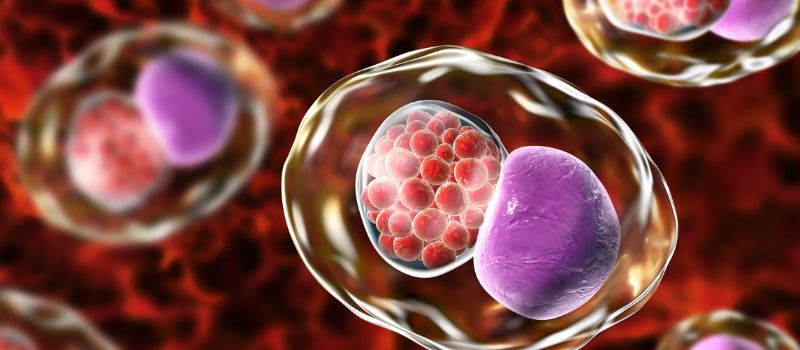
How is HPV treated?
There is no cure or treatment that can eradicate HPV infection, so the only treatment is to remove the lesions caused by the virus. Unfortunately, even removal of warts does not necessarily prevent the spread of the virus, and genital warts frequently recur. None of the available treatments are ideal or clearly superior to others. In Houston, we are conveniently located and offering walk in STD testing center.

What should a person do if sexually exposed to someone with genital warts?
Finally, female partners of men with genital warts should be reminded of the importance of regular Pap smears to screen for cervical cancer and precancerous changes in the cervix, since precancerous changes can be treated and reduce a woman’s risk of developing cervical cancer. Similarly, men should be informed of the potential risk of anal cancers, although it has not yet been determined how to best screen for or manage early anal cancer.
HPV Vaccine
Benefits of STD (STI) PCR testing
1. The PCR test can detect STD (STI) earlier than other tests.
Polymerase chain reaction (PCR) can directly identify small amounts of viral DNA in samples. Identifying the genetic code of a pathogen doesn’t require the pathogen to be alive—unlike a bacterial culture or viral culture. It also means the infection can be recent enough that the body hasn’t yet developed detectable antibodies for it; this means PCR techniques can sometimes detect sexually transmitted infections (and other diseases) earlier than other tests.
2. The PCR test is highly accurate on both measures of accuracy:
Sensitivity (the ability to identify the presence of a pathogen)
Specificity (the ability to distinguish one pathogen from another)
3. The sample is easy to handle. Samples don’t need to be taken at exactly the right time, and they’re easy to handle because you don’t have to worry about keeping the pathogens alive.
Turn around time
Our PCR STD (STI) test turn-around time is 48 hours; you will receive your report via email. You can also pick up a copy from our lab.
Local STD Testing Center in Houston
Auspicious Lab is conveniently lcoated at Houston, TX 77042 and serving as lab in Houston when you are search STD Testing near me. It just short driving distance from Bellaire, Bissonet, Downtown Houston area. However, we are serving our clients visiting from Galveston, Sugar Land, Katy areas as well. We have walk in Facility as well in addition to regular appointment for STD testing.
Turn around time
Our PCR STD (STI) test turn-around time is 48 hours; you will receive your report via email. You can also pick up a copy from our lab.
CONTACT US
Location:
3707 Westcenter Dr. Suite 100 Houston, TX 77042


